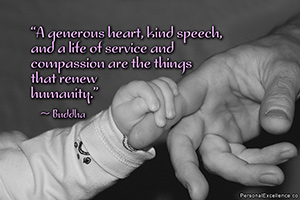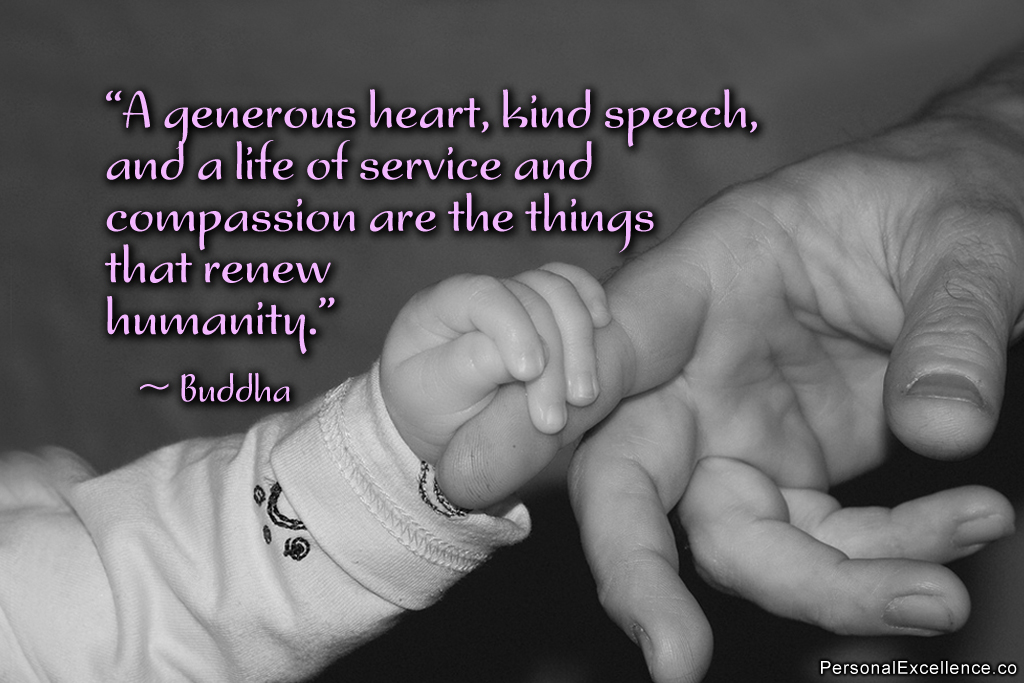
(Image: Mike Baird)
What is self-discipline? It is the ability to control yourself and work when you would much rather do something else. For example, studying for exams over playing games. Finishing a report over meeting your friends for drinks. Exercising at the gym over lazing at home.
Self-discipline is synonymous with self-control, because you are essentially controlling yourself to do something you don’t want. To be self-disciplined is to be a “disciple” of yourself.
Many self-help gurus talk about self-discipline as the key to success. Self-discipline is seen as good because “it gives us control” and “it makes us rational beings who are not ruled by their emotions.” Stephen Covey stated discipline as one of the four traits that makes great leaders, saying, “The undisciplined are slaves to moods, appetites and passions.”
Among my friends, they see discipline as the key to their problems. They believe that if they are more disciplined, they would achieve their goals. It seems that people who don’t have self-discipline are destined to be lazy, unambitious underachievers who will fail in life.
Self-Discipline is Overrated
Personally, I find self-discipline overrated. While it is helpful to have discipline, being disciplined is definitely not as important as what some people claim it to be.
For me, I have very little self-discipline. I dislike being subjected to control or restrictions. For the same reason, I dislike the authoritarian nature of my culture and my educational system while growing up.
Yet, my lack of discipline did not stop me from getting things done or achieving my goals. I was the top student in my major in university. I got a top job at a Fortune 100 company, a position that I had to compete with nearly a thousand people for, two years before my graduation. I was a high achiever in school as I balanced between school work, running my graphic design business, and being a tutor. When I was in the corporate world, I was a strong performer and would achieve my project objectives despite many obstacles.
While self-discipline is useful, I have found that discipline is not the best way to approach your goals, for two reasons:
- Firstly, while self-discipline gets the job done, it does not help you achieve your best results. That’s because you need to push yourself to overcome the initial inertia of not wanting to do a task. When doing tasks you hate, you’re essentially forcing yourself to do them all the time.
- Secondly, using self-discipline is like treating yourself like a drone or animal. Repeatedly pushing yourself to do things you don’t like is a terrible way to live life. Imagine forcing yourself to push through each day to get things done. Living becomes a numbing process. You are not a circus animal; your life is not about whipping yourself to do stuff. Why lead such a draining life?
But if self-discipline is not the best solution, then what is? Surely we need some control when we lack discipline?
Lack of Self-Discipline Is Not The Real Problem
The real deal is that lack of self-discipline is not the problem. Think about it — why is self-discipline needed in the first place? It’s because there is a lack of desire in the task. That’s why you need to push yourself to do it.
Hence, the real problem is your lack of desire for what you’re working on. This is what you want to look at.
The wrong definition of the problem is why many people struggle with discipline issues despite all the self-help materials out there on discipline. When you define the problem in the wrong way, you can never solve it. As Albert Einstein once said, “No problem can be solved from the same level of consciousness that created it.”
When you don’t feel like doing something, the answer isn’t to whip yourself with discipline. The question here is, “Why don’t you feel like doing this?” Because if you can understand why you lack desire for this task, you can then tackle it. You no longer need to rely on discipline to push yourself forward, but to tap into your unlimited pool of desire.
Addressing the Lack of Desire
How can you address a lack of desire for a certain task or goal?
Step 1: Be clear on why you want to do the task
Say you want to lose weight. You plan to exercise three times a week: Mondays, Wednesdays, and Fridays. However, when it’s time to exercise, you suddenly feel a lack of motivation. A wave of laziness hits you and you decide you would much rather watch TV. At this point, stop for a second.
Firstly, think back to the time when you created the plan to exercise. Get clear on your motivation behind this task. Why did/do you want to exercise? It is to lose weight. Why do you want to lose weight? Is it to look more attractive? Is it to become healthier? Is it to improve your self-image? Get clear of the reason.
Step 2: Identify your situational triggers
Next, identify the times when you are most motivated to do this. What happened during those times? Where were you? What were you doing? What triggered your desire to do this?
For example, it might be when you were looking at the mirror and you saw a bigger belly than when you last recall. It might be when you tried to wear this pair of pants and it stopped fitting. It might be when you saw this health report on the increased risk of diabetes among overweight people.
Think deep and identify the moments when you were triggered to do this task. These should be the times when you feel most strongly about it. The clearer you are on your triggers, the better your results for the next step.
Step 3: Reconnect with your desires
After identifying the triggers, replicate them as best as you can. For example, if your desire to lose weight came when you were looking at the mirror, go back to the mirror and look at yourself again. If it was from reading a particular health report, refer to the report again. If the report is not available, google the effects of obesity on one’s health. You can also replicate it through visualization — by closing your eyes and visualizing the negative effects if you do not improve your health.
The intent is to recreate the same stimuli that got you started on this goal, and in the process reconnect with your emotions and motivations for the goal.
Step 4: Tap into your inner desires
Depending on how well you replicated the triggers, your original motivation should resurface. Connect with this emotion. You will feel like going exercise immediately and forget why you felt lazy to begin with.
Here’s the trick: the motivation you have for the task has always there all along. It just got buried over the course of your daily life as you got bombarded with thoughts and emotions about other things. This exercise helps your true desire resurface and allows you to tap into them. You will find that the more you do the exercise, the more in tuned you become with your inner self. As your connection with your inner desire becomes stronger, you won’t need to use this exercise anymore to get you going in your tasks.
My Personal Story with Self-Discipline
Looking back in my life, I was constantly channeling into my desires in a subconscious way.
For example when I was in school, I would feel an inertia towards studying. But then I would start thinking about why I should do it. I knew that I wanted to do well and be successful in life, and getting good results was an intermediary step to that goal. I also have a very strong passion for winning and being the best in what I do.
Being aware of these motivations made me work on the tasks automatically. When I was studying, it wasn’t because I strapped myself to the chair and made myself read. It was because I wanted to. By studying, I knew that it was leading me to my goals, and I felt motivated about them. When using this method, it was effortless getting to my tasks. So I tapped into my motivations more.
As I grew up, I found my connection with my inner desires became stronger and I was able to tap into them more freely. The more I aligned myself with my true desires, the more results I got. In contrast, the people around me who constantly subjected themselves to discipline did not do so well.
It became clear to me that the results I was getting were not in spite of the lack of discipline. It was because I wasn’t using discipline. By refusing to choose a path of control and restriction, I found another, better path to perform the tasks. I was getting better results with less effort. It was a path that was much more enjoyable; a path that had no inertia and where I naturally wanted to get things done. It was a route aligned with both my rational thoughts and my inner desires.
After I came to this realization, I started to align myself fully with my inner passions and desires. The results further affirmed my realization. For example, writing articles for my blog. When I discipline myself to write stuff I don’t feel like writing, the results are crappy. Not only do I have to put in more effort to write, but the writing is flat. Instead, when I try the other approach of tapping into my inner desires, I become inspired and write endlessly. My words flow and my thoughts connect.
A great stimulus I use is to write about things relevant to my life. For example, this self-discipline article is inspired from a coaching session, where my client felt that lack of discipline is a big issue in his life (which I obviously disagree with, and hence this article). Another good stimulus is my desire for growth. Whenever I face a problem, it represents an opportunity for growth. I would tap into that for inspiration and write an article, sharing solutions for that problem.
Self-Discipline as a Supplementary Tool
For sure, there will be situations when self-discipline comes in handy. For example, when you face blockages with your inner desire. Or when you are required to do things which are extremely undesirable.
But all in all, self-discipline should be used as a supplementary tool. It should not be the go-do solution for everything. In the end, discipline is a short-term fix. To create your highest results, you need to connect with your real desires. What will fill your life up with passion and joy is by connecting with your inner motivations.
Moving Forward
The next time you have a task you do not feel like doing, do not force yourself to do it with discipline. Instead,
- Identify your reason for doing the task. What is it?
- Be aware of the contexts or stimuli which led to your decision do this task.
- Simulate these contexts and stimuli as much as possible to re-induce your desires.
- Lastly, tap into your inner desires.
When you start doing that, you will find that you no longer experience inner resistances. You will be focused on giving your best shot in whatever you do, because you want to. You will find channeling into your desires a much better way to live life than the route of self-discipline.









 Thanks for reading. If you like my free articles, join my private email list and get my latest updates and articles sent right to your inbox.
Thanks for reading. If you like my free articles, join my private email list and get my latest updates and articles sent right to your inbox.